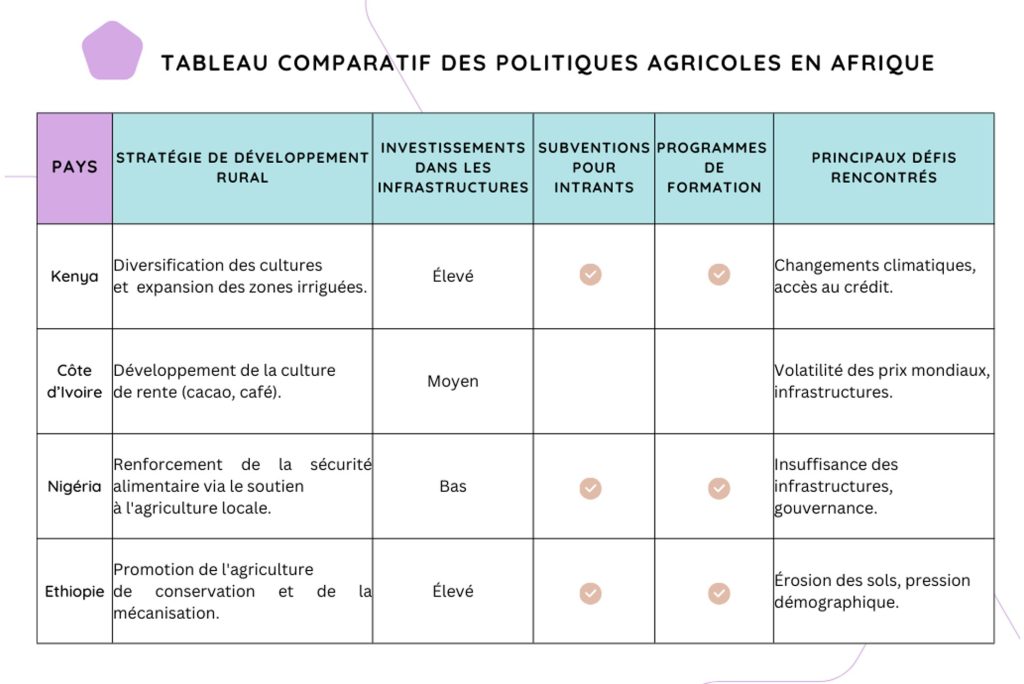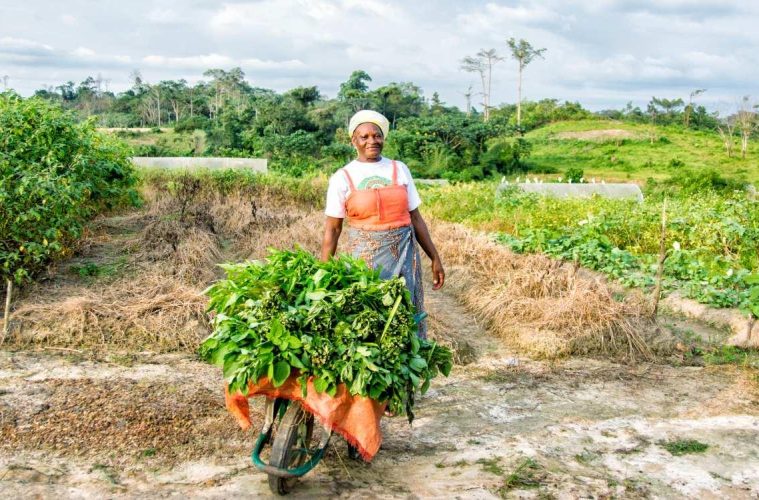Agriculture plays a vital role in the economies of many African countries not only as a source of food but also as a driver of development and economic growth. An analysis of agricultural policies in Africa reveals the diversity of strategies adopted by different countries to encourage rural development and ensure food security. This diversity reflects the specific ecological, economic, and socio-political conditions of each country or region.
Successes achieved:
– Some countries have implemented policies to boost investments in agricultural infrastructure such as irrigation systems and rural roads to improve market access.
– Others have introduced subsidies for agricultural inputs like fertilizers and quality seeds to increase productivity.
– Agricultural training and awareness programs have also been strengthened to improve the skills and competitiveness of local farmers.
Existing challenges:
– Despite these efforts, many countries face challenges such as dependence on climatic conditions, lack of sustainable financing for agriculture, and difficulties related to governance and policy implementation.
– The small size of farms and limited access to credit remain major obstacles for many farmers.
What lessons can be learned?
– Successes highlight the importance of well-targeted policies adapted to local realities.
– Failures emphasize the need to strengthen institutional capacities while promoting partnerships between the public and private sectors.
Comparative table of agricultural policies in Africa:

This comparison shows that effective agricultural policies require not only adequate investments but also a holistic approach that takes into account local specifics and farmers’ needs. Thus, learning from the experiences of different countries can be crucial in formulating more robust and better-adapted agricultural policies in the future.




